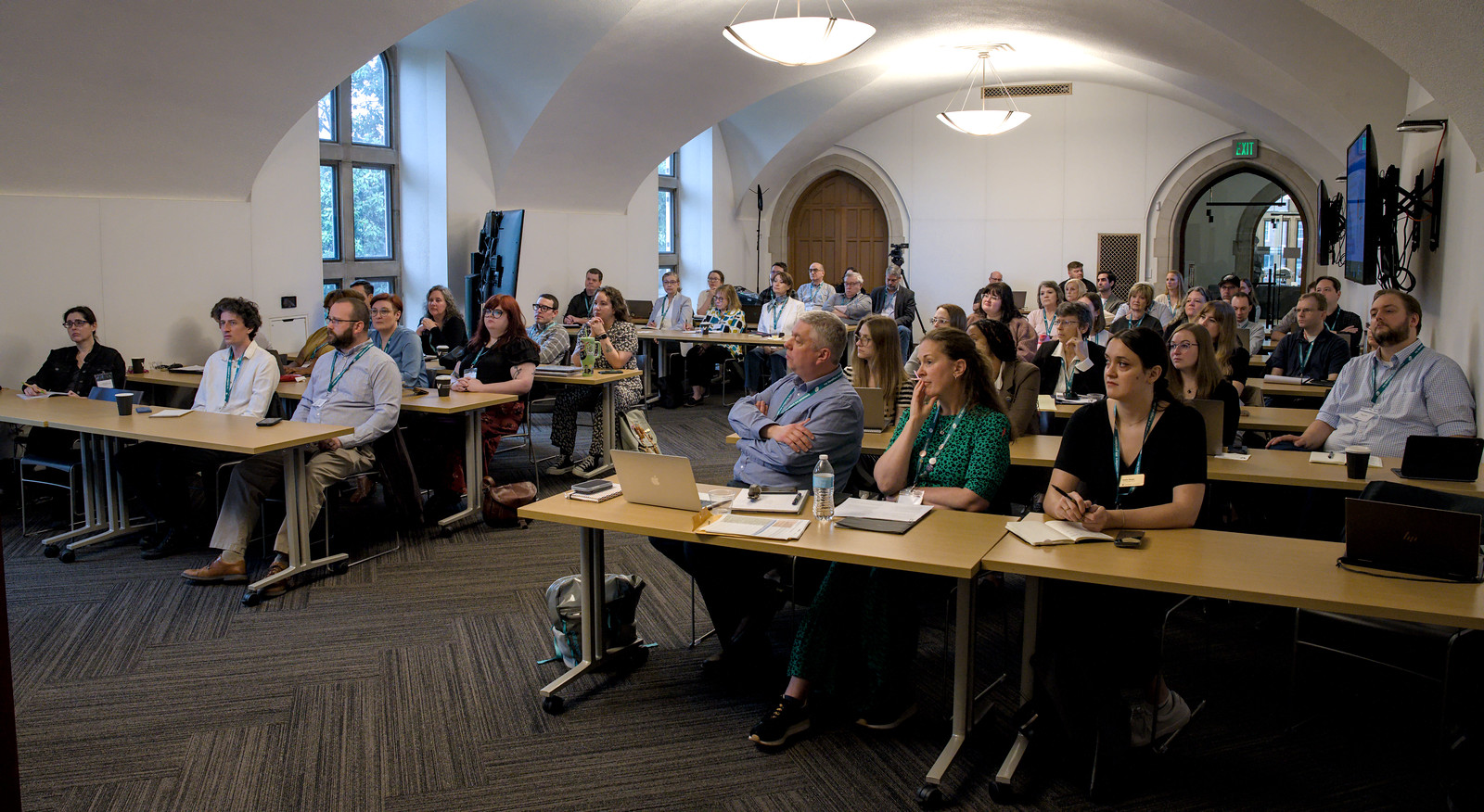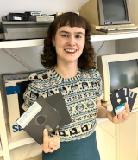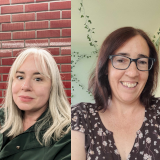Blog
Unless otherwise stated, content is shared under CC-BY-NC Licence
Archiving and Preserving My PhD Thesis: Reflections for Further Research
Holly Turpin is a Research Associate in Archiving and Preserving Open Access Books at Loughborough University.
This blog post has also been published on Loughborough University’s Open Research Blog.
Loughborough University is one of the partners working on Open Book Futures (OBF). OBF builds upon the work of the COPIM project (2019–2023) and aims to initiate a step-change in the ambition, scope and impact of community-led Open Access book publishing. Specifically, Loughborough University is part of Work Package 7 (WP7), Archiving and Preservation, which is developing guidance and easy to use tools to help scholar-led open access presses and library repositories to digitally preserve open access monographs and their associated content (e.g. video, audio files etc.) for long term access.
One of the main areas of activity of WP7 for the Open Book Futures project is focussed on the archiving and preservation of PhD theses, an activity in which university repositories typically play an important role. For OBF, archiving and preserving PhD theses means not only safely storing the final version of the thesis and its associated content in a digital format, but also ensuring that PhD theses are openly accessible to be discovered and read by any reader with internet access.
Insights and Inspirations from the 2023 Excellence Award Winners
This post was originally published on the NDSA website.
The biennial NDSA Excellence Awards were established in 2012 to recognize and encourage exemplary achievement in the field of digital preservation stewardship at a level of national or international importance. Over the years many individuals, projects, and organizations have been honored for their meaningful contributions to the field of digital preservation.
The time has come again to recognize and celebrate the accomplishments of our colleagues! Nominations are now being accepted for the NDSA 2025 Excellence Awards. Nominations can be submitted using the2025 NDSA Excellence Awards Nominations form until June 23, 2025.
DRI Launches Digital Preservation Terminology: An Irish language glossary for Repositories and Archivists
Dr. Maeve O'Brien is Membership Manager for the Digital Repository of Ireland / Taisclann Dhigiteach na hÉireann
See below for the Irish language version of this blog
The Digital Repository of Ireland (DRI) is delighted to share that along with Gaois, part of Fiontar & Scoil na Gaeilge at Dublin City University, we have created a standardised set of Irish language terms relating to digital preservation – producing this list as a publication available on open access to the digital preservation community.
The work builds on an earlier terminology project by Niamh Ní Charra with support from the University of Galway and the National Archives, in liaison with An Coiste Téarmaíochta. An initial list of 214 terms was compiled and designated in the Irish language in the original project led by Niamh Ní Charra. The project focused on identifying the most commonly used archival terms which included a small number of those relating to digital preservation.
Notes on obsolescence, travelling to ‘No Time To Wait 8’ in Karlsrühe
Richard Moores is Digital Collections Specialist for the Science Museum Group. He attended the NTTW8 Conference last year with support from the DPC Career Development Fund, which is funded by DPC Supporters.
It was at the Gare de L'Est in Paris, I felt an unexpected twinge of nostalgia for the era of cinema scale public information displays. I was travelling to the 8th edition of the No Time to Wait (NTTW) Conference in Karlsrühe, contemplating obsolescence - my own included, given how fast the intervening years had suddenly passed since the last visit to this station. I'd deliberately eschewed the banks of screens, and the mobile app and headed off to consult that old oracle of train truths in panoramic overview, the Departure Board, its fluttering voice like the furious wings of tiny mechanical birds taking flight. The big display was, of course, long gone.
Connecting the Americas: Digital Preservation in the Music City
Delaney Sweep is Digital Preservation Technician at the University of Calgary.
 Last week I was delighted to attend the DPC Members Forum and Networking Event – Americas in Nashville, Tennessee. This two-day event, which was hosted by Vanderbilt University, was the first of its kind in the USA. It provided both in-person and online attendees the chance to not only connect with other digital preservation professionals from across the region but also the opportunity to discuss ideas and learn from each other.
Last week I was delighted to attend the DPC Members Forum and Networking Event – Americas in Nashville, Tennessee. This two-day event, which was hosted by Vanderbilt University, was the first of its kind in the USA. It provided both in-person and online attendees the chance to not only connect with other digital preservation professionals from across the region but also the opportunity to discuss ideas and learn from each other.
Diskettes and Discussions: What We Learned from the Future Nostalgia Workshops
Leontien Talboom is a technical analyst at Cambridge University Libraries and is currently leading the Future Nostalgia Project.
On the 26th of March, the Future Nostalgia project brought together two expert groups for a full day of workshops exploring the many joys - and headaches - of working with floppy disks. Whether you’ve imaged thousands of disks or just unearthed a mystery format in your archives, these sessions were about sharing knowledge, building a guide, and trying to prevent each other from reinventing the wheel.
We invited practitioners from across the digital preservation community, spanning national libraries, university archives, museums, and more. And from the start, it was clear: there’s no such thing as a ‘standard’ floppy disk experience.
Public release of the Registries of Good Practice midpoint review
In January, half-way through the two-year funding for the Registries of Good Practice project, we put together a midpoint review report for the project steering group. This group represents the funders of the work, Yale University Library (YUL) and the Digital Preservation Coalition (DPC), so the primary purpose of the report was to check the project was meeting their expectations and to give them a chance to steer the project. The same report was also presented the DPC's Good Practice Sub-Committee, to give them a chance to provide some oversight and input.
However, we want to be as open as possible, so we planned to make a public version of this report in the hope that this will help steer our work in year 2. This did not require significant changes to the report, which is almost identical to the internal version. However, it took a while to get around to reviewing and releasing the report due to other pressures on our time. As such, some of the information is a little out of date, but hopefully it will still provide a useful overview of the project work so far and what we're planning for the last year (and perhaps beyond!)
A perspective on need among digital preservation professionals
James Baker is Professor of Digital Humanities at the University of Southampton. His work sits at the intersection of history, cultural heritage, and digital technologies. He leads Digital Preservation Southampton, a unit that provides flexible digital preservation solutions for organisations in all sectors.
In 2023 I was lucky enough to be awarded funding by the Arts and Humanities Research Council to do something I really enjoy but rarely have enough time for: spending time with digital preservation professionals, trying to understand what they need, and considering if and in what ways I can be of use. Of course the needs of digital preservation professionals are, as is well documented, many and various.
Steps towards a definition of 'Business of Usual' for digital preservation
Jenny Mitcham is Chief Digital Preservation Officer at the Digital Preservation Coalition (DPC) and Caylin Smith is Head of Digital Preservation for Cambridge University Libraries (CUL).
The term Business as Usual (BAU) is not unique to the digital preservation community. BAU happens across sectors when projects, programmes, or other work delivered in a time-bound way become part of an organisation’s core services –or business. BAU includes activities that need to be carried out regularly with skilled members of staff, and it usually constrained by the annual or cycle-driven budgets (Roberts, 2013).
BAU is a growing topic of interest within the digital preservation community. Earlier this year, the Digital Preservation Coalition and the Digital Preservation team at Cambridge University Libraries (CUL) ran a workshop with community members to discuss what BAU means in a digital preservation context. CUL is currently transitioning deliverables from its Digital Preservation Programme to BAU and was looking for examples of successful BAU planning or input on what should be considered.
The new burning of the books in digital and ideological epistemicide: A call to action
Introduction
We are writing this article out of concern for the recent crisis facing the US Agency for International Development (USAID) and particularly the effect of the crisis on the agency’s knowledge as a global public good. In this article, we discuss the loss of USAID’s knowledge as a possible epistemicide – or destruction of knowledge systems – and what we can do as professionals in the domain of knowledge and sustainable development to mitigate this destruction by supporting our USAID colleagues and partners.

























































































































































